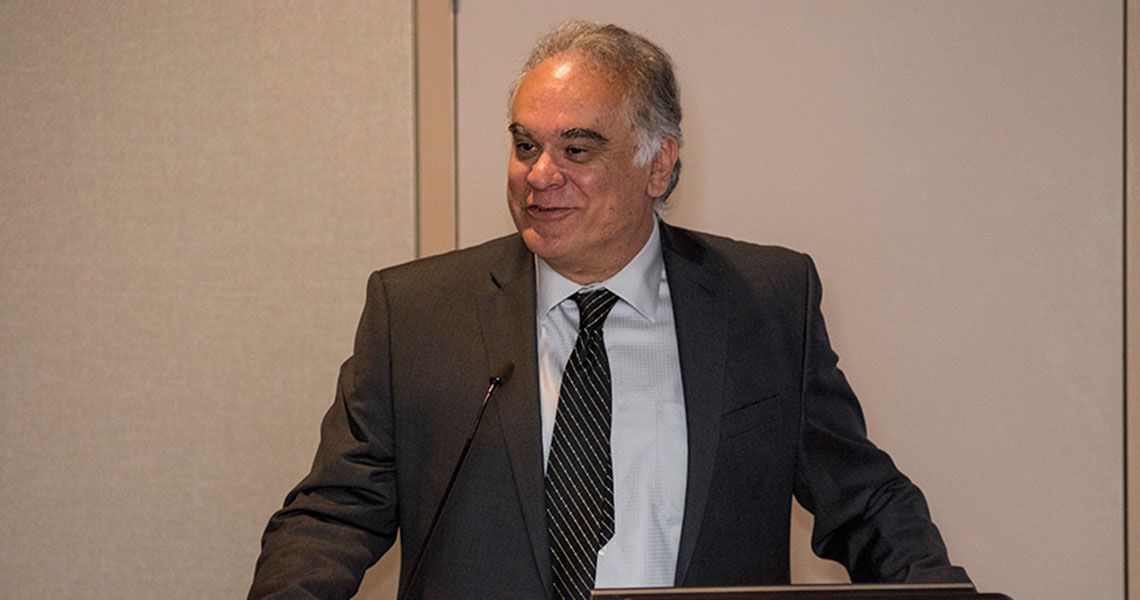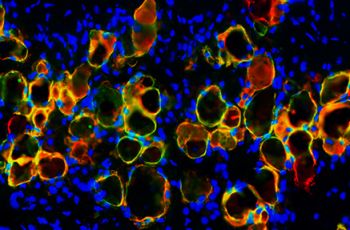For David Acosta, MD, chief diversity and inclusion officer at the Association of American Medical Colleges (AAMC), the examples kept piling up: a medical student whose patient referred to her as “the colored girl;” a Latino professor, celebrating his PhD at an upscale restaurant, who was twice mistaken for a valet; a clinician who had to endure derogatory racial terms as her patient explained why he couldn’t be treated by someone both black and female.
“These are real stories,” Acosta said at a special Internal Medicine Grand Rounds, co-sponsored by the George Washington University School of Medicine and Health Sciences (SMHS) Office of Diversity and Inclusion, in mid-October. “Why is it so difficult [for us] to talk about race and racism?”
In academic medicine, in particular, he explained, the topic of race serves as a barrier for several reasons: it tends to trigger significant emotions, expose people’s vulnerabilities, provoke defensive posturing, and bring out potential biases.
“[But] it’s time to have a deeper talk, to really peel back that onion,” he said. “We do know that racial discrimination, racial biases, and stereotyping play a major role in inequities today.”
What’s critical to note, he added, is that medical students are already indicating that fighting against racism and racial biases is important to them; in 2014, for example, SMHS medical students held a die-in for White Coats for Black Lives, a movement aiming to eliminate racial discrimination in health care, near the Foggy Bottom Metro station. Last year, student members of the SMHS Social Justice Interest Group participated in a social media campaign, #WhiteCoats4BlackLives.
“Our learners are telling us what they want to hear, what they want to learn,” Acosta said. “Our trick is how we begin putting some of this into a curriculum that we’ve already professed is jam-packed. But I think it’s very important [that] we’re nimble enough to match what’s going on in society.”
Acosta’s solution is to follow what students are already doing: bringing racial discrimination out into the open.
“We have an idea, an idea that ultimately, I think … allows us to understand [racial discrimination] if we just take the time to ask, ‘have you ever experienced this before?’ ”
Faculty development, he added, is where the discussion should start. Most faculty members are reluctant to discuss racial issues for fear they will say the wrong thing or come across as racist or bigoted; with guidelines, however, such as a willingness to be honest, pursue conversations, and commit to change, they can breach the racial divide and start shaping the next generation of health care professionals to be more inclusive.
While Acosta crafts faculty development, education and training, and best practices for the AAMC diversity policy and program, there are some strategies academic medical institutions can demonstrate now, such as committing to diversity; ensuring everyone feels validated, respected, and valued; embracing authenticity and intersectionality; encouraging others to share their voices openly and safely; and providing a sense of belonging.
“The challenge is hard; I’m not trying to say it’s easy,” Acosta said. “I think if we can persevere and be resilient, regardless of the barriers and resistances we meet along the way, then we can fine-tune the necessary change in our health systems and academics.”



